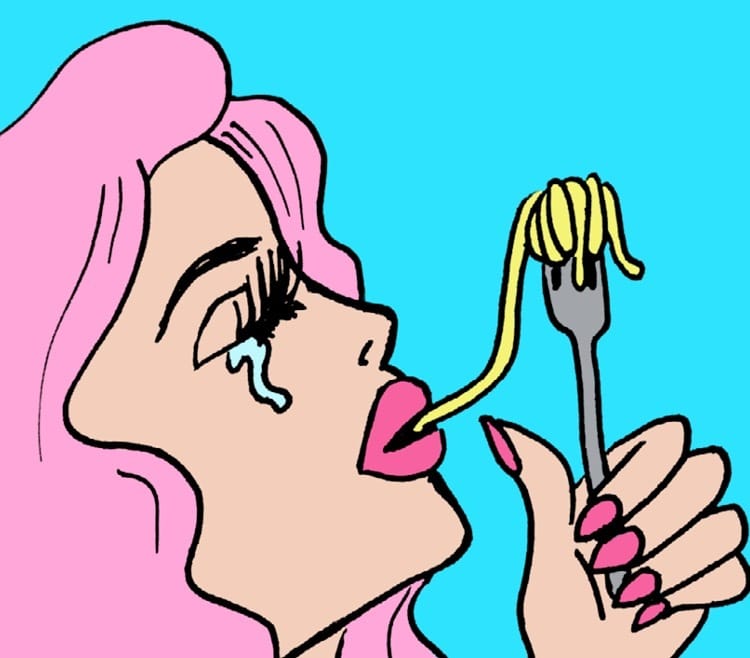Last week’s newsletter was chock full o’ super useful health tips, but you know what I missed?? My introduction! Oopsie. You’d probably like to know who’s writing this thing and why, right? I’ll get right to it.
Hi, I’m Jenny Champion! I’ve been a registered dietitian for 15 (!!) years and working with Dr. Mulholland for the past six of them. I initially studied nutrition to learn how to lose weight for myself because I was a chronic yoyo-dieter with every eating disorder in the book, terrible anxiety and rock-bottom confidence. After nearly a decade of research, school (UD + NYU) and personal trial and error I finally cracked the code: stop chasing fads and just eat real food.
Since conquering my own demons, losing my mom to cancer and becoming a mom myself, I’m totally obsessed with helping other people eat for mental, physical and emotional health. I know firsthand how painful a bad relationship with food can be, how important it is to take care of your body to prevent disease and to be a good example for the little eyes watching everything we do.
I’m super excited to share all the nuggets of wisdom I’ve gathered through my journey and professional experience. So happy you’re here!

Eating for Mental Health
If you’ve ever suffered from anxiety and / or depression, read up. What you eat can dramatically affect your mood. Of course there are so many layers to mental health and your lunch choice might be just the tip of the iceberg, but being more aware of what you put in your mouth can be a minor first step with mega results.
Forget about food-logging for calories. What you really should be tracking is how foods affect your mood. Here are my top three bad-mood-inducing culprits:
Culprit #1: Refined Carbs
Refined / processed carbs have very little (if any) fiber and no fat which means there’s nothing in them to reign in a blood sugar spike. If you notice you tend to be grumpier on days you had cereal for breakfast than on omelette days, there’s a reason. Sometimes post-meal anxiety / depression happen because you had a huge blood sugar surge and now you’re crashing. One way to prevent that crash is to pair carbs with fat.
Here are a few examples of what I’d suggest once you pinpoint the carbs that affect your mood.
If pasta makes you cry:
Stop eating pasta.
Switch to lentil or chickpea pasta.
Eat less pasta and more of everything else at dinner (salad, meatballs, etc.)
Drown it in olive oil for that carb-fat pairing effect I mentioned above.
If oatmeal makes you hangry:
Stop eating oatmeal.
Switch to warm quinoa or chia pudding.
Eat less oats and add a handful of nuts, a heaping spoon of peanut butter, or pair it with a full fat yogurt or low fat yogurt with nuts.
If pizza makes you emotional:
Stop eating pizza.
Try a lower carb option like cauliflower or almond flour crust pizzas.
Eat less pizza and order a few things from the appetizer menu like salad, grilled veggies, meatballs, etc.
Culprit #2: Fast Food
You know how you feel totally gross after a road trip fueled only by rest stop food? If you’re eating fast food on the regular, you’re basically doing this to yourself constantly. You’re never going to feel great mentally or physically if dinner plans are typically from a pickup window.
Culprit #3: Alcohol
This one annoys me most. I love a glass of wine with dinner, but I noticed it was making me moody so I cut it out. Having a few drinks on the weekend can be perfectly fine and healthy, but really watch for mood changes as the buzz wears off. Also pay attention to how you feel the day after drinking. If you’re grumpier, lazier or hungrier that’s a recipe for lousy mental health.
With all of this said… there will be times when you’ll eat foods you know don’t make you feel great emotionally, but you did it anyway. Do NOT beat yourself up. Just get right back on the clean-eating horse and move on even more aware of how great it feels to fuel your body properly.
Know someone who needs this more than you??
Tools + Resources
Quick note: supplements can interact with medications so always run it by your provider before buying any.
GABA- neurotransmitter with a calming effect, might help with anxiety
B-Complex- might help with depression
The Food Mood Connection by Uma Naidoo, MD
Eat to Beat Depression and Anxiety by Drew Ramsey, MD
Q+A
Q: I just graze all day long ! It is hard to eat only healthy low cal items when you feel like you could snack all afternoon.
A: If you feel the need to snack all day you’re 1) probably not eating enough fat and / or protein at meals and 2) not eating large enough meals. We do actually need to be satisfied after eating so if that means loading up your plate a little higher with all the right things (protein, healthy carbs and good fats), then that’s exactly what you should do. And if you blow your WW points on an avocado, you have my blessing.
How-To Library
How was this week's newsletter?
Disclosures:
This is not medical advice. Speak to your doctor before taking supplements or making any major dietary and / or lifestyle changes.
We’re affiliates for some of the brands and / or products we recommend which means we’ll make a small commission if you click and buy. Thanks for the support!